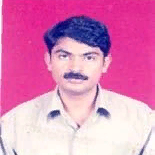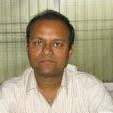International Journal of Image, Graphics and Signal Processing (IJIGSP)
IJIGSP Vol. 8, No. 3, 8 Mar. 2016
Cover page and Table of Contents: PDF (size: 1168KB)
Restoration of Degraded Gray Images Using Genetic Algorithm
Full Text (PDF, 1168KB), PP.28-35
Views: 0 Downloads: 0
Author(s)
Index Terms
Image Degradation Model, Genetic Algorithm, Mean Square Error, Improvement in Signal to Noise Ratio
Abstract
This Image deblurring aims to eliminate or decrease the degradations that has been occurred while the image has been obtained. In this paper, we proposed a unified framework for restoration process by enhancement and more quantified deblurred images with the help of Genetic Algorithm. The developed method uses an iterative procedure using evolutionary criteria and produce better images with most restored frequency-content. We have compared the proposed methods with Lucy-Richardson Restoration method, method proposed by W. Dong [34] and Inverse Filter Restoration Method; and demonstrated that the proposed method is more accurate by achieving high quality visualized restored images in terms of various statistical quality measures.
Cite This Paper
Dhirendra Pal Singh, Ashish Khare,"Restoration of Degraded Gray Images Using Genetic Algorithm", International Journal of Image, Graphics and Signal Processing(IJIGSP), Vol.8, No.3, pp.28-35, 2016. DOI: 10.5815/ijigsp.2016.03.04
Reference
[1]H. C. Andrews and B. R. Hunt, Digital Image Restoration, Engleword Cliffs, NJ:Printice Hall, 1997.
[2]D. L.Angwing, H. Kaufman, Digital Image Restoration, A. K. Katsaggelos, editor, New York: Springer-Verlag, 1991.
[3]G. Anderson and A. Netravali, "Image Restoration Based on Subjective Criterion", IEEE Trans. Sys, Man, Cybern., vol. SMC-6, pp. 845-853, Dec. 1976.
[4]T. F. Chan and J. Shen, "Mathematical models for local nontexture inpaintings", SIAM J. Appl. Math. 62(2001), 1019-1043.
[5]S. Esedoglu and J. Shen, "Digital inpainting based on the Mumford-Shan-Euler image model", European Journal of Applied Mathematics, vol. 13, pp. 353-70, 2002.
[6]R. C. Gonzalez, R. E. Woods, Digital Image Processing, Addison-Wesley, 1987.
[7]A. K. Jain, Fundamentals of Digital Image Processing, Prentice-Hall Inc., 1989.
[8]K. R. Castleman, Digital Image Processing, Englewood Cliffs, N.J.: Prentice-Hall, 1979.
[9]M.R. Banham and A.K. Katsaggelos,"Digital Image Restoration", IEEE Signal Processing Magazine, vol. 14, no. 2, pp.24-41, 1997.
[10]R. Molina, J. Núñez, F. Cortijo, J. Mateos, "Image restoration in astronomy A Bayesian perspective", IEEE Signal Processing Magazine, vol. 18, no. 2, pp. 11-29, 2001.
[11]R. L. Lagendijk, J. Biemond, "Basic Methods for Image restoration and Identification", The Image and Video Processing Handbook, pp. 125-140, Academic Press, 1999.
[12]V. M. R. Banham and A. K. Katsaggelos, "Digital Image Restoration", IEEE Signal Processing Magazine, vol. 14, no. 2, pp. 24-41, March1997.
[13]A. K. Katsaggelos and R. W. Schafer, "Iterative deconvolution using several distorted versions of an unknown signal", In Proceedings of the IEEE International Conference on Acoustics, Speech and Signal Processing, Boston, MA, vol. 8, pp. 659-662, April 1983.
[14]D. C. Ghiglia, "Space invariant deblurring given N independent blurred images of the same object", Journal of Optical Society of America, vol. 1, no. 4, pp. 398-402, April 1984.
[15]A. K. Katsaggelos, " A Multiple Input Image Restoration Approach", Journal of Visual Communication & Image Representation, vol. 1, pp. 93-103, September1990.
[16]G. B. Giannakis and R. W. Heath Jr., "Blur identification of Multichennel FIR Blurs and Perfect Image Restoration", In Proceedings of the IEEE International Conference on Image Processing, vol. 1, pp. 717-720, Lausanne, Switzerland, Sep. 1996.
[17]G. Harikumar and Y. Bresler, "Efficient Algorithms for the blind Recovery of Images by Multiple Filters", In Proceedings of the IEEE International Conference of Image Processing, Lausanne, Switzerland, pp. 97-100, Sep. 1996.
[18]I. Aizenberg, T. Bregin, C. Butakoff, V. Karnaukhov, N. Merzlyakov and O. Milukova, "Type of Blur and Blur Parameters Identification Using Neural Network and Its Application to Image Restoration". In: J.R. Dorronsoro (ed.) Lecture Notes in Computer Science, vol. 2415, Springer-Verlag, Berlin, Heidelberg, New York, pp. 1231-1236, 2002.
[19]D. A. O. Handley and W. B. Green, "Recent Developments in Digital Image Processing at the Image Processing Laboratory at the Jet Propulsion Laboratory ", Proceedings of the IEEE, vol. 60, no. 7, pp. 821-828, 1972.
[20]J. C. Brailean, R. P.Kleihorst, S. N. Efstratiadis, A. K. Katsaggelos and R. L. Lagendijk, "Noise Reduction filters for dynamic image sequences : A Review", Proceedings of the IEEE vol. 83, no. 9, pp. 1272-1292, Sep. 1995.
[21]J. C. Brailean and A. K. Katsaggelos, "Simultaneous Recursive Motion Estimation and Restoration of Noisy and Blurred Image Sequences", IEEE Trans. Image Processing, vol. 4, pp. 1236-1251, Sep. 1995.
[22]W. H. Richardson, "Bayesian-based iterative method of image restoration", Journal of Optical Society of America, vol. 62, pp. 55-59, 1972.
[23]L. B. Lucy, "An iterative technique for the rectification of observed distribution", Astronomical Journal, vol. 79, pp. 745-754, 1974.
[24]C. Munteanu and A. Rosa, "Gray-Scale Image Enhancement as an automatic Process Driven by Evolution", IEEE Trans. On Systems, Man, and Cybernetics, Part B: Cybernetics, vol. 34, No. 2, pp.1292-1298, April 2004.
[25]L. S. Davis, "A Survey of Edge Detection Techniques", Computer Graphics and Image Processing, vol. 4, no. 3, pp. 248-270, 1975.
[26]Z. Michalewicz, Genetic Algorithms+Data Structures=Evolution Programs, Berlin, Germany: Springer-Verlag, 1996.
[27]C. E. Shannon (1948), "Mathematical Theory of Communication", Bell System Technical Journal, vol. 27, no. 1, pp. 623-656, 1948.
[28]S. Kullback and R. A. Leibler(1951), "On Information and sufficiency", Annals of Mathematical Statistica, vol. 22, no. 1, pp. 79-86.
[29]S. F. Gull and J. S. Killing, "Maximum Entropy Method in Image Processing", Proceedings of the IEEE, vol. 131, no. 6, pp. 646-659, 1984.
[30]E. T. Jaynes, "On the Rationale of Maximum Entropy Methods", Proceedings of the IEEE, pp. 939-652, vol. 70, no. 9, Sep.1982.
[31]R. Narayan and R. Nityanand, "Maximum Entropy Image Restoration in Astronomy", Annual Review of Astronomy and Astrophysics, vol. 24, no. 1, pp. 127-170, September 1986.
[32]R. Kikuchi and B. H. Soffer, "Maximum Entropy Image Restoration.I. The Entropy Expression", Journal of Optical Society of America, vol. 67, no. 12, pp. 1656-1665, 1977.
[33]A. C. Bovik, Handbook of Image and Video Processing, Elsevier Academic Press, San Diego, Calif, USA, 2nd edition, 2005.
[34]W. Dong, L. Zhang, G. Shi and X. Wu, "Image Deblurring and Super-resolution by Adaptive Sparse Domain Selection and Adaptive Regularization", IEEE Transactions on Image Processing, vol. 20, no. 7, pp. 1838-1857, 2011.
[35]D. P. Singh, A. Khare, "Evolutionary Image Enhancement Using Multi-Objective Genetic Algorithm", International Journal of Image, Graphics and Signal Processing, vol. 6, no. 1, Nov., 2013.
[36]D. P. Singh, A. Khare, "Text Region Extraction: A Morphological Based Image Analysis Using Genetic Algorithm", International Journal of Image, Graphics and Signal Processing, vol. 7, no. 2, Jan., 2015.

